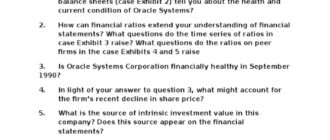Writing assignments are not an exclusive mastery of English classes. Most topics currently require some work on project work and exams. However, if English is not one of your best topics and you dreamed literally of lectures on “how to write”, and writing basics like punctuation and grammar; what should you do Say prayer and hope for the best? Are you going through a poorly written essay after a poorly written essay? Or better yet, sigh and wish the whole writing thing would just go away?
These options are not only unnecessary, all three will drag your marks down and make it difficult to learn your subject. Writing can be relatively easy if you remember three easy points.
1. Planning
2. Structure: beginnings, middle and ends
3. Edit, edit, edit
Planning
Start by reading the question. Sounds silly, doesn’t it? But if you’re not right about this part, you can also throw salt over your shoulder for good luck. The way you write the question matters. It tells you
a) what you have to do – discuss, argue,
b) how you need to do it – give examples, source other writers, and
3) what you need to write about. Make sure you understand what you are asking for before you start.
With the question out of the way, plan how you will answer it. This includes research and knowledge of your topic. The better you know about what you are writing, the more convincing you will be. If you need a bibliography, this is the time to start one. If you need more than surfing the web for information, schedule a visit to the local library or museum. Find out how long the task will take and give yourself plenty of time to complete it. Make notes on the topic and develop your argument according to the question requirements and general essay structure. All you have to do is write your essay, article or report.
Structure
The beginning is your introduction. Be strong, answer the set question and introduce your “arguments”. The first sentence should work – that’s what I’m going to say and that’s how I’m going to say it. Be decisive and thorough. To remove any words that slow it down, read it aloud [or at least mouth the words] and you’ll quickly notice those that don’t sound right. Anyone who travels through the language must be edited or written differently. Any repeated word must also be looked at. Vocabulary and repetition will hinder your work and make it difficult to understand. Remember, good strong sentences that don’t fool the language or get lost in a mix of words.
Your arguments are the middle or the meat of your essay. Each requires its own paragraph [at the least] with its own beginning, middle and end [introduce your case, state your case, end your case. Essay structure in miniature form]. Be clear and concise. That is, make sure that what you write answers the question. Check each paragraph against your introduction and the question to make sure you stay on track. Support your arguments, a new argument equals a new paragraph. To keep the essay strict and clear, read it aloud. If you find that the end of the paragraph discusses something completely different than the beginning, then you are mixing up your topics. Keeping it completely neat, tidy and boxed makes it easy to read and understand, and shows that you understand your topic. Note that this is not the time or place to think “out of the box” and introduce radical thought chains. Write only to answer the question and don’t waver. Tell the teacher or lecturer what they want to hear.
Conclusions summarize the introduction, so keep a copy of what you have already said next to you, and access it consistently. Your end needs to be as strong as your beginning. Indicate what the argument was like, how you encountered those arguments, and end with how that proves your argument. Avoid terms like “In conclusion” and “Therefore” if you can, as these have now reached the stage of cliché. That’s the end of the essay, that’s obvious, so you really don’t need to utter it. Right here you indicate that you have fully answered the question as required.
Edit, edit, edit
During this stage of the process, you will find the words wrong or unnecessary. Read aloud [again] and hear what you say. If it sounds wrong to you, it’s probably wrong and will need additional checking. If the sentences are too long, they will sound and read like boring. If they are too short, they will be found to be stacked and more compatible with preschool level writing than a serious secondary or tertiary expression. Keep sentence length mixed. Delete any words that cause a beat of your sentence. Just say what you need to say. Checking spelling and punctuation at this point is essential. Don’t rely on the spelling / grammar of your software. Make sure your program is set to the correct country – ie English US, English UK, English Australian. Each country has a different style and spelling usage. Have someone read your work to understand spelling mistakes. Why waste valuable points on something as easily repairable as a typo? Your reader will also be able to tell you if something doesn’t make sense.
When you have finished editing, read through it again and triple check that the question is answered. This is most important. Most! Your teacher wants to know that you a) understood what you were asking for, and b) showed that you know your topic well enough to “talk” about it within the set parameters, i.e. within the box. Finish the bibliography and credit all the images you may have used. Review your layout and presentation. Text should be simple – Times New Roman or Arial are both good. Titles should be readable and not too fancy – Arial Black instead of Curlz – and exactly the same font. In general, stick to the two font rules, avoid underlining, use italics for book or movie titles, size 12 font and single or 11/2 line spacing. If other styles are specifically ordered, then follow those orders. Word count is often a requirement so stay within the boundaries as well. When you’ve done all that and the paper is ready to deliver … read it again.
Here are the basic rules for writing. Even if your topic does not require amazing writing skills, better writing essays and reports will result in better grades. Following a few simple rules is enough to edit a well-written report. You may not have to be the next Hemmingway, but you need to express yourself well enough to show that you understand what you have learned. Remember that your goal is to get a good grade and learn enough about your subject to pass exams and assessments. The higher your grades, the more extensive your career choice after school. Prayers, desires and “flying” will not put you on the path to success. A little planning and a willingness to learn a few things along the way will do.






